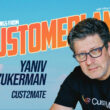In a special report on brand trust, Edelman called trust: ‘the new brand equity’. The global pandemic in which brands were expected to feel a moral duty to help solve societal problems has left its mark. Trust and business integrity now play a much more significant factor in purchasing decisions.
By Linda Vetter, SVP Marketing, 3radical
Why do we trust brands?
Whenever a customer purchases a product or service, they are putting trust in the company they buy from. They trust that the product or service will fulfil the advertised function. As this isn’t always guaranteed, if a brand shows that it can deliver on its promises, then customers are more likely to return and repeat the experience.
Edelman’s Trust Barometer is one of the most comprehensive annual surveys on societal trust. Their special report on brand trust highlighted three main areas that consumers consider before trusting a brand:
- Product: does the brand provide good value for the money? Does it sell high-quality products or services?
- Customer experience: how does the company treat the customer? How quickly does it respond to problems? How well does it protect customers’ privacy?
- Societal impact: how fairly does it treat its staff? What is its stance on wider social issues?
Edelman Trust Barometer Special Report: My Top 5 Takeaways
1. Brand trust is the third most important buying factor after price and quality.
Following the uncertainty of a global pandemic and a current cost of living crisis, shoppers are more risk-averse. The greater caution means that people turn to the things they trust the most – including brands and businesses. Brand trust becomes an even greater factor in making purchase decisions.
Edelman found that trust was more important to shoppers than customer service quality, convenience, and brand reputation. 88% of respondents stated that trust was important and 32% said it was a critical deal breaker. This shows the importance of building trust-based relationships with customers to turn them into loyal brand advocates.
2. Brand trust matters more than brand love.
As well as customer service quality, convenience, and reputation, brand trust was also more important to shoppers than brand love. And it is longer-lasting too. 40% of respondents stated that they would stop buying from brands they love if they stopped trusting the company that owns them. Not only do brands have to foster loyalty at the beginning of the customer journey but they also must work to maintain it.
Aspirationally, this number could be even higher. The percentage of high-income households willing to drop mistrusted brands was 50%. This suggests that lower-income households may be more inclined to stop buying from untrusted brands if they had the means to do so.
3. The younger the customer, the more important brand trust is.
In a more cautious post-pandemic world, brand trust is important for all ages. 68% of people stated that trust was more important to them today than it was in the past. However, this number gets progressively higher the younger the customer is – peaking at 75% for the 18-34 demographic.
Customer satisfaction is no longer enough to obtain brand loyalty. Tech-savvy younger demographics have an overwhelming amount of choice when making purchasing decisions.
Brands that can go beyond functional transactions and create trust-based relationships are going to reap the rewards in the long term.
4. Business integrity is foundational to brand trust.
The first step to building brand trust is business integrity. In the report, Edelman asked respondents why it was more important to trust brands they buy from today than it was in the past. The most popular answer was trust was more important in all aspects of customers’ lives. So brands can’t just make a few small business tweaks to build trust. They must be baked into all areas of the company.
For example, personalizing the customer experience is a great way for brands to build trust. However, if you base this on third-party or unconsented data, then the impact will be lost. Similarly, if brands are not transparent with their data practices or try to trick customers into accepting unwanted marketing emails, they will lose trust – on matter how good their products or services are.
5. Trust drives growth.
Edelman conclude that customers with a high level of brand trust are more likely to:
- Repeat purchase: 57% would buy from a trusted brand even if cheaper options were available.
- Be loyal: 43% will stick with a trusted brand even if something goes wrong.
- Actively advocate: 61% would recommend a trusted brand and display it in the home or on their person.
Trust starts the virtuous cycle that leads to greater customer lifetime value. Fostering trust-based relationships keeps customers returning for more and boosts new acquisitions through word-of-mouth recommendations. Businesses achieve growth and customers get a better experience. A win for everyone.













